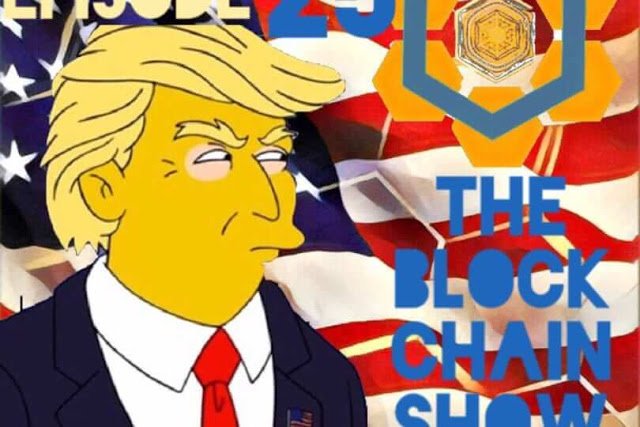US government: blockchain as a trump for the future
The US government underlines its strong commitment to the state use of Blockchain and cryptography technology and intends to put the sails in the future, reaffirming the high level government officials of the White House on the data transparency 2017 last Tuesday. The aim of the Conference is to explore, mediate and advance forms of open-government to the US government. Officials underlined the essential importance of technology for the future of US policy, public administration and the population.

For example, at the Open Data Summit last Tuesday, Margie Graves, a senior civil servant in the Office of Management and Budget (OMB), the American Cabinet for Administration and Households, and Trump consultant Chris Liddell directly from the White House to the Renaissance Hotel in Washington city.
The presence and the lectures of the officials are cruel. The OMB, chaired by Mick Mulvaney, the co-founder of the Congressional Blockchain Caucus, the blockchain working group in the US Congress, is directly responsible for the molding of the presidential executive policy - the vision trumps for the future of the US.
Do not depend on it
Thus, it was little surprise that Margie Graves represented the American government at the conference as a strong advocate of blockchain technology.
"With the Blockchain, the White House is exploring a wide range of future-oriented opportunities that can be used by the government," Graves said. In her talk, she underlined the need to further explore technologies so as not to be subject to prior art.
In the process, it was open to open up blockchain and cryptography solutions in the updating of the Open Government National Plan, which is expected at the end of the year. In this way, it already highlighted specific fields of application for the technology: in the future, blockchain solutions could play a decisive role not only in terms of cybersecurity, but also in combating fraud or food waste. Together with Blockchain's Koryphae Don Tapscott, Graves wanted to identify further possibilities of public application next week.
Chris Liddell, a government consultant and strategic director of the White House, was less concrete in his speech: He spoke out for standardized data solutions. Only in this way would it be ensured that technological solutions such as blockchain or artificial intelligence could have successfully adapted in the future. Liddell appeared that the government should not block the future of tomorrow with today's reforms. The New Zealander, together with Trumps chief economist Gary Cohn, is part of the Office of American Innovation, the department in the White House, which is dedicated to the public potential of future-oriented technologies.
With a determined attitude
The fact that the US government is so prestigious reflects the great enthusiasm of the Trump administration for blockchain and distributed Ledger solutions and speaks equally as well for the technology itself. Not only the intercession of the Chief People's Office of Vice President Mike Pence testify, Mark Calabria, but also several official blockchain pilot projects of the US government. Thus, governmental institutions such as the American Center for Disease Prevention and the Federal Administration's General Service Administration are experimenting with blockchain solutions.
Moreover, these projects are supported by an extroverted financing system. For example, the US Department of Homeland Security (DHS) has missed a substantive financial injection this week, the blockchain start-up Digital Bazaar with a three-quarter million dollar. Digital Bazaar and other smaller blockchain companies have already received grants from the US Business Support Program, the Business Innovation Program (SBIR), in the past. With the help of the funds, the companies are now to promote the development of suitable blockchains for various applications of governmental use.
Alone on a wide corridor?
However, the American economy is also increasingly focused on blockchain solutions. This is demonstrated by the view on the blockchain patent applications that industry-wide research is being carried out on the technology. In the first half of 2017, the number was 390. The number of applications for the coveted exclusive rights, according to data from the US Patent Office, almost doubled compared to the previous year.
The white house, with its strategic opening-up of state blockchain use, does not stand alone, as the pioneer paths among the state users show. In 2017, for example, the EU has invested 5 million euros in blockchain research. In Estonia, blockchain is already a daily routine in public administration, and since that year, its blockchain-based land registry has been operating as a pilot project. However, if the US is to continue investing further, investing state and public awareness in the near future, the Blockchain on the state level will have the confidence that they will soon be forced to go to the stag.
@cmtzco has voted on behalf of @minnowpond. If you would like to recieve upvotes from minnowpond on all your posts, simply FOLLOW @minnowpond
Congratulations @spawn! You have completed some achievement on Steemit and have been rewarded with new badge(s) :
Click on any badge to view your own Board of Honor on SteemitBoard.
For more information about SteemitBoard, click here
If you no longer want to receive notifications, reply to this comment with the word
STOP